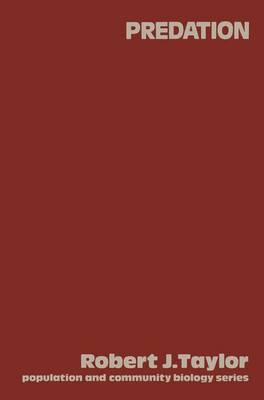Population and Community Biology
1 total work
When assuming the task of preparing a book such as this, one inevitably wonders why anyone would want to read it. I have always sympathized with Charles Elton's trenchant observation in his 1927 book that 'we have to face the fact that while ecological work is fascinating to do, it is unbearably dull to read about . . . ' And yet several good reasons do exist for producing a small volume on predation. The subject is interesting in its own right; no ecologist can deny that predation is one of the basic processes in the natural world. And the logical roots for much currently published reasoning about predation are remarkably well hidden; if one must do research on the subject, it helps not to be forced to start from first principles. A student facing predator-prey interactions for the first time is confronted with an amazingly diverse and sometimes inaccessible literature, with a ratio of wheat to chaff not exceeding 1: 5. A guide to the perplexed in this field does not exist at present, and I hope the book will serve that function. But apart from these more-or-Iess academic reasons for writing the book, I am forced to it by my conviction that predators are important in the ecological scheme. They playa critical role in the biological control of insects and other pests and are therefore of immediate economic concern.
